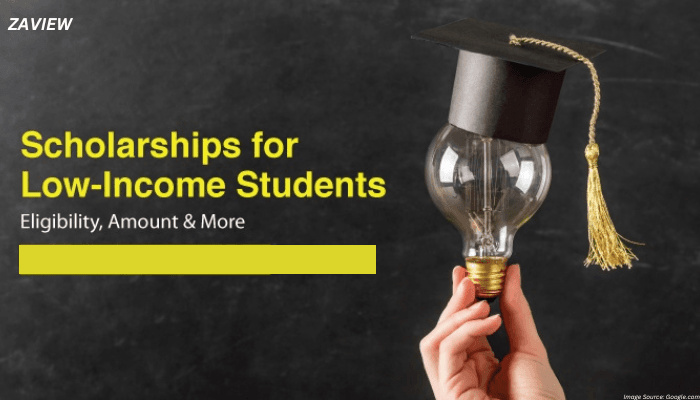Education is usually termed the key to unlocking opportunities, but for low-income students in the United States, the financial barrier might seem impossible to overcome. However, scholarships are like beacons of hope and give students the opportunity to access higher education without the heavy burden of tuition fees. Scholarships to low-income students are important because they can make dreams a reality and provide the much-needed support for academic and professional development. These scholarships do not just ease the financial strain but also help in shaping a better future for those who might otherwise not have the resources to pursue their aspirations.
Table Of Contents
Available Scholarships For Low-Income Students
There are several different kinds of scholarships available to low-income students in the U.S. Each of these is different and caters to unique needs and academic goals. Some are merit-based, focusing on excellent academic performance, and others are need-based, primarily centered on the financial need of the applicant.
- Merit-based scholarships are awarded for great academic performance.
- Need-based scholarships focus on students’ financial situation.
Government-Funded Scholarships
The federal government offers numerous scholarships and grants that specifically target low-income students. Of course, one of the most widely recognized is the Pell Grant. It offers generous funding based on the student’s financial needs. The Federal Supplemental Educational Opportunity Grant (FSEOG) provides additional support for students with significant financial needs.

- The Pell Grant is one of the best-known federal grants for low-income students.
- FSEOG provides additional aid to students with exceptional financial need.
Private Scholarships & Grants
Besides government-funded programs, there are many private organizations, foundations, and corporations that provide scholarships to low-income students. These scholarships differ in terms of eligibility criteria, such as fields of study or location. Some examples include the Jack Kent Cooke Foundation and The Gates Scholarship.
- Private scholarships often target specific fields or communities.
- Organizations like the Gates Scholarship offer comprehensive support.
Scholarships From Colleges & Universities
Most colleges and universities have their own scholarship programs for low-income students. These scholarships usually make education more accessible, and can cover a substantial part of tuition fees. Some schools, especially Ivy League schools, provide full-ride scholarships that would pay for everything: tuition, room, and board.
- Ivy League schools provide full-ride scholarships.
- Many universities provide financial aid for low-income students.
Specialized Scholarships For Underrepresented Groups
There are many scholarships specifically directed toward underrepresented groups, like minorities, women, and first-generation college students. These scholarships are meant to level the playing field to give opportunities to those who otherwise have been denied higher education.
- Scholarships support underrepresented minorities, women, and first-generation students.
- They promote diversity in higher education.
Scholarships For Community & Technical College Students
Not all students have dreams of attending four-year universities. For those who are to pursue technical or vocational professions, there are also available scholarships for community colleges and technical institutions. These scholarships support students who want to acquire hands-on skills and enter the labor force immediately.

- Community college scholarships focus on vocational training.
- Technical scholarships aid students in acquiring practical skills for the workforce.
How To Apply For Scholarships
Applying for scholarships sounds very overwhelming, but an important part of obtaining free money to help finance studies. Applying for most of the scholarships requires proof of needing financial aid, academic transcripts, or letters of recommendation from scholars. Therefore, it is worth reading through the requirements eligibility for every scholarship carefully in order to submit the supporting documents within the deadline period.
- Carefully look at scholarship requirements and deadlines.
- Gather necessary documents like transcripts and recommendation letters.
Overcoming The Challenges Of The Scholarship Application Process
While scholarships are a great opportunity, applications can be competitive. Not all low-income students have adequate resources or can participate in extracurricular activities. However, with much persistence and dedication, one might increase the chances of winning some scholarship. School counselors and online materials can also help in making this process easier.
- This application process can be pretty competitive, requiring persistence.
- Consult school counselors and online resources.
Scholarships For Low-Income Students: Why They Matter
Scholarships are more than just financial aid; they are actually a lifeline for many poor students who are trying to achieve their educational goals. With the increasing cost of tuition, scholarships help bridge the gap between a student’s dream and the financial reality. They don’t only open doors to higher education but also give students hope and motivation who previously thought college was out of their reach.
- Scholarships bridge the gap in tuition costs.
- They motivate students to pursue their educational dreams.
Conclusion
Scholarships for poor students act as a transformational tool, offering an opportunity to seek brighter futures. They lift burdens created by financial hardships for such students, enabling them to strive for their academic dream; unlock career opportunities for those students; and thereby render them useful to society at large. With rising education expenses, scholarships have come in as a boon resource making education accessible to everybody.
